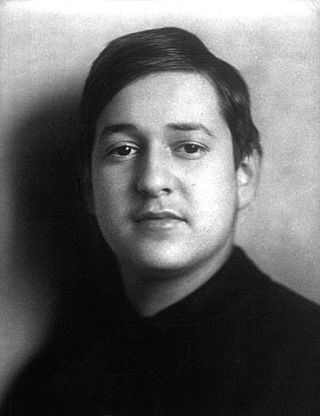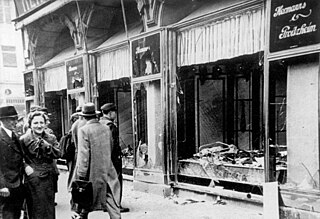Related Research Articles

Robin Hood is a legendary heroic outlaw originally depicted in English folklore and subsequently featured in literature, theatre, and cinema. According to legend, he was a highly skilled archer and swordsman. In some versions of the legend, he is depicted as being of noble birth, and in modern retellings he is sometimes depicted as having fought in the Crusades before returning to England to find his lands taken by the Sheriff. In the oldest known versions, he is instead a member of the yeoman class. Traditionally depicted dressed in Lincoln green, he is said to have stolen from the rich to give to the poor.

Kurt Julian Weill was a German-born American composer active from the 1920s in his native country, and in his later years in the United States. He was a leading composer for the stage who was best known for his fruitful collaborations with Bertolt Brecht. With Brecht, he developed productions such as his best-known work, The Threepenny Opera, which included the ballad "Mack the Knife". Weill held the ideal of writing music that served a socially useful purpose, Gebrauchsmusik. He also wrote several works for the concert hall and a number of works on Jewish themes. He became a United States citizen in 1943.

Edward Benjamin Britten, Baron Britten was an English composer, conductor, and pianist. He was a central figure of 20th-century British music, with a range of works including opera, other vocal music, orchestral and chamber pieces. His best-known works include the opera Peter Grimes (1945), the War Requiem (1962) and the orchestral showpiece The Young Person's Guide to the Orchestra (1945).

Sir Michael Kemp Tippett was an English composer who rose to prominence during and immediately after the Second World War. In his lifetime he was sometimes ranked with his contemporary Benjamin Britten as one of the leading British composers of the 20th century. Among his best-known works are the oratorio A Child of Our Time, the orchestral Fantasia Concertante on a Theme of Corelli, and the opera The Midsummer Marriage.

Erich Wolfgang Korngold was an Austrian composer and conductor, who adopted US nationality after fleeing from Europe. A child prodigy, he became one of the most important and influential composers in Hollywood history. He was a noted pianist and composer of classical music, along with music for Hollywood films, and the first composer of international stature to write Hollywood scores.

Sir George Alexander Macfarren was an English composer and musicologist.

Classical music of the United Kingdom is taken in this article to mean classical music in the sense elsewhere defined, of formally composed and written music of chamber, concert and church type as distinct from popular, traditional, or folk music. The term in this sense emerged in the early 19th century, not long after the United Kingdom of Great Britain and Ireland came into existence in 1801. Composed music in these islands can be traced in musical notation back to the 13th century, with earlier origins. It has never existed in isolation from European music, but has often developed in distinctively insular ways within an international framework. Inheriting the European classical forms of the 18th century, patronage and the academy and university establishment of musical performance and training in the United Kingdom during the 19th century saw a great expansion. Similar developments occurred in the other expanding states of Europe and their empires. Within this international growth the traditions of composition and performance centred in the United Kingdom, including the various cultural strands drawn from its different provinces, have continued to evolve in distinctive ways through the work of many famous composers.

A Child of Our Time is a secular oratorio by the British composer Michael Tippett (1905–1998), who also wrote the libretto. Composed between 1939 and 1941, it was first performed at the Adelphi Theatre, London, on 19 March 1944. The work was inspired by events that profoundly affected Tippett: the assassination of a German diplomat by a young Jewish refugee in 1938, and the Nazi government's reaction to the assassination which was in the form of a violent pogrom against Germany's Jewish population: Kristallnacht. Tippett's oratorio deals with these incidents in the context of the experiences of all oppressed people, and it carries a strongly pacifistic message of ultimate understanding and reconciliation. The text's recurrent themes of shadow and light reflect the Jungian psychoanalysis which Tippett underwent in the years immediately before he wrote the work.

The folkloric hero Robin Hood has appeared many times, in many different variations, in popular modern works.
Robin Hood is an English folk hero and legendary outlaw.

Michael John Hurd was a composer, teacher and author, principally known for his dramatic cantatas for schools and for his choral music.
The composition of art song in England and English-speaking countries has a long history, beginning with lute song in the late 16th century and continuing today.

Jasper St John Rootham, was a civil servant, soldier, central banker, merchant banker, writer and poet.
William Reeve was an English theatre composer and organist.
James Francis Brown is an English composer. He studied composition with the Viennese émigré Hans Heimler and then at the Royal Academy of Music, London.
This is a summary of 1934 in music in the United Kingdom.
Wilfred Florestan Franks (1908–2003) was a British artist, designer, sculptor, dancer and actor. He married Daphne Rudd in 1951
The Cleveland Work Camps in England were known locally as "Heartbreak Hill". They were a series of short events, staged in the East Cleveland ironstone mining villages of Boosbeck and Margrove Park, which ran from 1932 to 1938 with the aim of helping to alleviate the poverty which these mining communities experienced as a result of pit closures during the Great Depression. Notable figures involved with establishing the scheme were the aristocratic landowner Major James Pennyman and his wife Ruth Pennyman, an idealistic young Cambridge University graduate called Rolf Gardiner, Manchester Guardian Journalist David Ayerst and local trade unions.
Ruth Pennyman was an English artist, designer, community organiser and theatrical producer. She was the wife of aristocratic land-owner Major James Pennyman of Ormesby Hall in Middlesbrough.
References
- Notes
- ↑ Anderson (2008)
- ↑ Gilgan, Danyel (18 July 2020). "The extraordinary artistic camps for unemployed ironstone miners". The Northern Echo. Retrieved 27 December 2022.
- ↑ Myers (2004)
- ↑ North (2009)
- Sources
- Anderson, Don (2008) Program Notes: Nakamatsu Plays Mozart, The Rochester Philharmonic Orchestra. Accessed 31 October 2008.
- Myers, Alan (2004) Sir Michael Tippett (1905 - 1998), Myers Literary Guide: The North-East (online version first published in 2004 with the Centre for Northern Studies). Accessed 31 October 2008.
- North, John (2009) The Northern Echo, UK, A Snippet Of Tippett
- See also http://ironawecleveland.blogspot.it/2009/11/snippet-of-tippett-2.html